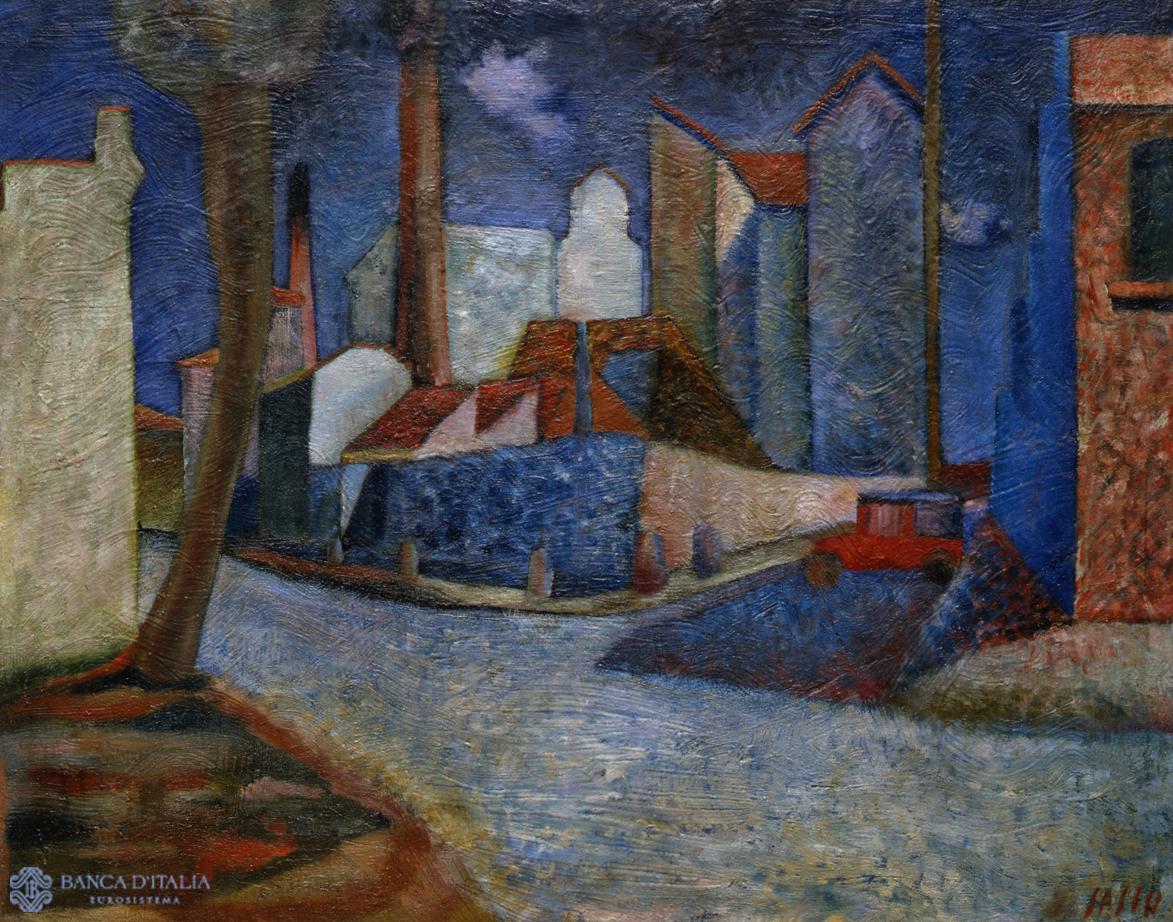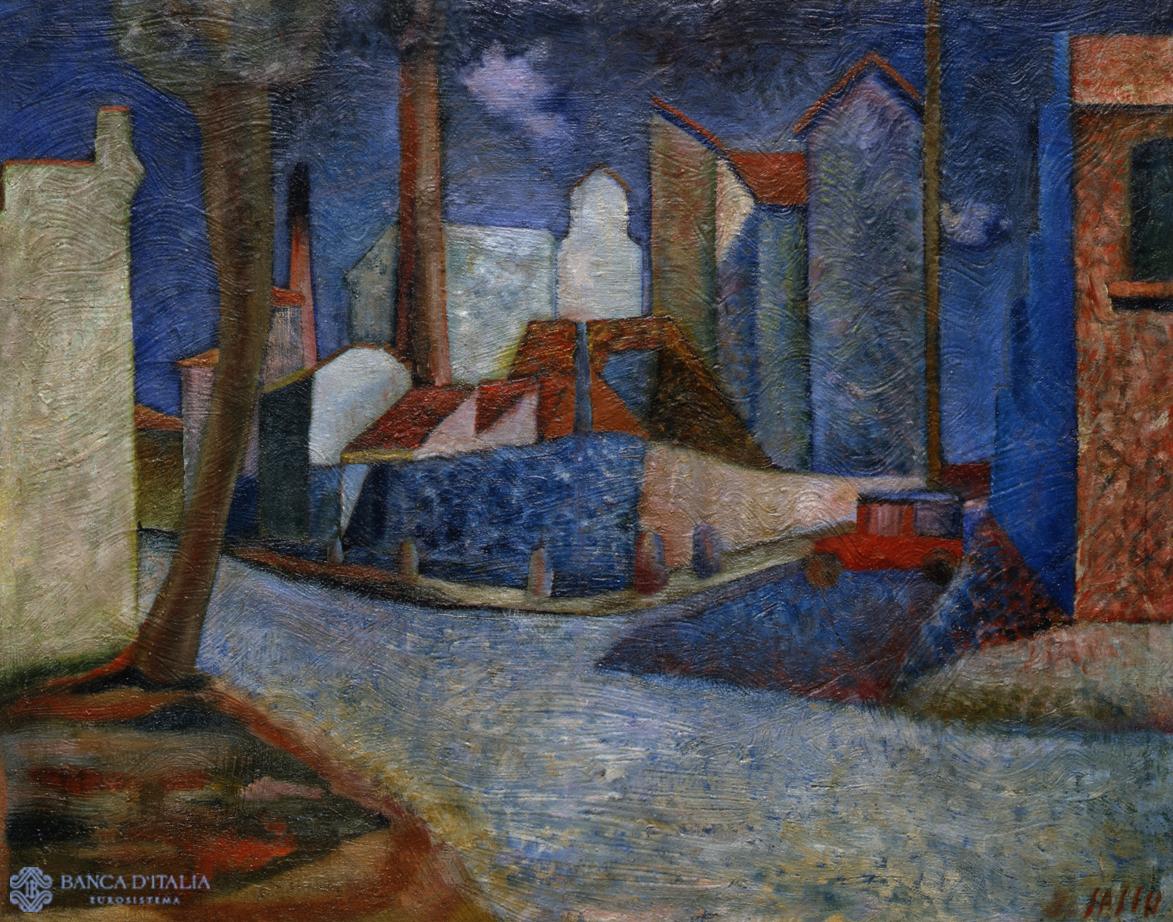Aligi Sassu (Milan 1912 - Majorca 2000) began his career at a very early age; before he was twenty he joined the Futurist movement and, together with Bruno Munari, signed the Dinamismo e forza muscolare manifesto.
Towards the mid-1930s Sassu became close to the artists who, in 1938, in opposition to the Novecento group ended up by joining the Corrente movement, ranging from Manzù to Birolli to the architect Edoardo Persico, a protagonist of architectonic rationalism and major organizer of the opposition culture under Fascism.
Between 1930 and 1935 Sassu made a long stay in Paris during which he searched for models in the French 19th century, from Delacroix to the Impressionists and Van Gogh, for the construction of a free and new language. In 1939 he therefore brought these tendencies to the Corrente movement; they led to works based on subjects open to urban reality.
Between the last part of the 1920s and the end of the 1940s Sassu was an important reference point for his cultural openness and his quality of animator of the new trends of Italian art.
Aligi Sassu
Aligi Sassu (Milan 1912 - Majorca 2000)
20th century AD


